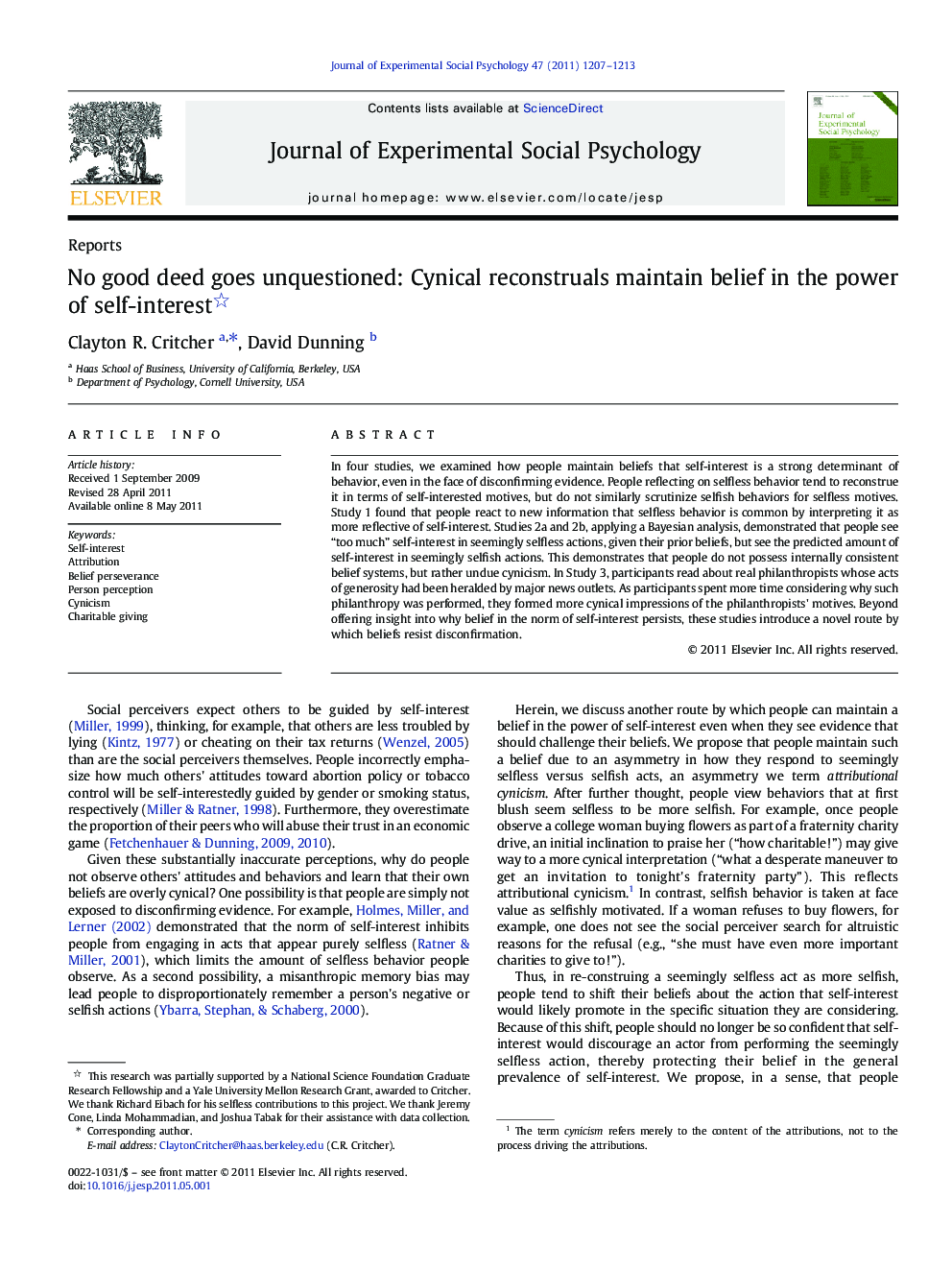| Article ID | Journal | Published Year | Pages | File Type |
|---|---|---|---|---|
| 947988 | Journal of Experimental Social Psychology | 2011 | 7 Pages |
In four studies, we examined how people maintain beliefs that self-interest is a strong determinant of behavior, even in the face of disconfirming evidence. People reflecting on selfless behavior tend to reconstrue it in terms of self-interested motives, but do not similarly scrutinize selfish behaviors for selfless motives. Study 1 found that people react to new information that selfless behavior is common by interpreting it as more reflective of self-interest. Studies 2a and 2b, applying a Bayesian analysis, demonstrated that people see “too much” self-interest in seemingly selfless actions, given their prior beliefs, but see the predicted amount of self-interest in seemingly selfish actions. This demonstrates that people do not possess internally consistent belief systems, but rather undue cynicism. In Study 3, participants read about real philanthropists whose acts of generosity had been heralded by major news outlets. As participants spent more time considering why such philanthropy was performed, they formed more cynical impressions of the philanthropists' motives. Beyond offering insight into why belief in the norm of self-interest persists, these studies introduce a novel route by which beliefs resist disconfirmation.
► Given that attributions can be represented as conditional probabilities, Bayes' Rule offers a standard for how attributions should unfold. ► People see “too much” selfishness in seemingly selfless acts, but see the predicted amount of selfishness in seemingly self-interested acts. ► As people continued to think about what motivated philanthropists' giving, they became more cynical about why the philanthropists were charitable.
